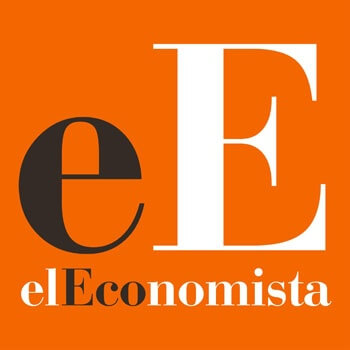Opinion
Central bank currencies going digital
Electronic cash might be the future, but it is still unclear what payment innovation it offers for the public, certainly in the euro area. And it is unlikely to fully replace the comfort the consumer feels in having money under the mattress.
This opinion piece was originally published in the Money Review section of Kathimerini and is forthcoming in El Economista.

Central banks often update the money they issue to include new features. The next update will be to introduce a digital version of cash. Central bank digital currencies (CBDCs) are the closest alternative to a wallet of cash, except they come in a digital format and in electronic wallets that are stored by a country’s central bank.
CBDCs aim to mimic two crucial physical properties of cash. First, the holder remains anonymous: when you pay with it, you do not have to reveal your identity, as you would with a credit card, for example. Second, the issuer of the currency is still the central bank, not a private entity.
Cash still represents about one fifth of all face-to-face payments worldwide, and is even more popular in many European countries. In the euro area, 32% of people say they prefer to use cash for payments. But differences between countries are quite startling. According to Statista, cash usage at point of sale in 2019 was as high as 75% and 63% in countries like Greece and Germany, but low in countries including the United Kingdom (15%), Sweden (13%), France (24%) and the Netherlands (26%). In most other European countries, there appears to be a more or less 50/50 split in preferences for cash versus digital payments: Italy (57%), Poland (49%), Spain (53%).
As Sweden, one of the lowest cash-usage countries in the world, has discovered physical cash is unlikely to disappear entirely. But as digitalisation advances, the tendency is for diminishing use, a trend that may have even accelerated during the pandemic for hygiene reasons.
The emergence of cryptocurrencies, or private electronic money, has led to the development of technology that can guarantee anonymity, privacy and security. These features are crucial to cryptocurrencies and can be readily adopted by CBDCs.
To the extent that there will be a need for cash in the digital era, CDBCs therefore arguably fill a gap. A good number of central banks have started thinking about how to introduce a CBDC, with at least seven countries in the development phase.
China is already piloting a digital yuan, with the ambition of having it ready for the 2022 Winter Olympics so that foreign athletes can use it. The US Fed (digital dollar), the European Central Bank (e-euro) and the Bank of England (Britcoin) are also considering digital equivalents of their own coins and banknotes and are in the investigative phase of such projects.
What does the consumer stand to gain from the introduction of CBDCs? In the euro area, there are already a number of different means of digital payments. From e-banking, to cash cards, phone apps and credit cards, the ability to pay electronically is widely available and popular.
However, such solutions do not preserve anonymity and as they are all private, there are costs associated with their provision. This is where e-cash may offer an interesting alternative. CBDCs are provided by a public authority and could reduce the cost to the consumer. One of course might ask why a public solution to this problem is necessary. Why not simply encourage competitive private solutions instead?
This is even more so, if one considers that e-cash cannot be unlimited. First, because money that is transferred from commercial bank accounts to the central bank for cash purposes cannot be intermediated. This reduces the ability of banks to execute their role of financing growth. But second, because limiting e-cash is necessary to prevent money laundering.
A last reason for the interest in CBDCs may come from central banks themselves. A digital equivalent of the underlying currency could increase the appeal of the currency beyond national borders by making the currency more readily available.
However, in most cases this convenience offered through digitisation is likely to have limited impact in international take-up of currencies. The real reason why a currency is used globally has more to do with the value and stability it represents, not only its availability. A currency like the digital yuan, which is currently the most advanced digital currency in this respect, stands no chance of displacing the dollar as a global leader because the underlying currency, the renminbi, is not even convertible.
Similarly, if the launch of the e-euro is partly motivated by the desire to increase the euro’s global attractiveness, going digital may be helpful but will not be sufficient. Other architectural factors will be more important in advancing its international appeal.
Electronic cash might be the future, but it is still unclear what payment innovation it offers for the public, certainly in the euro area. And it is unlikely to fully replace the comfort the consumer feels in having money under the mattress.
Republishing and referencing
Bruegel considers itself a public good and takes no institutional standpoint.
Due to copyright agreements we ask that you kindly email request to republish opinions that have appeared in print to [email protected].








